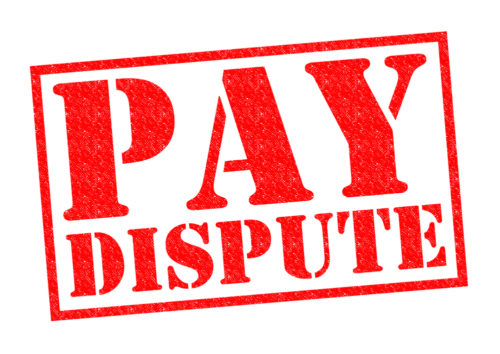Get in touch 0117 325 0526
Get in touch 0117 325 0526
In my experience of the engineering and manufacturing sector over two decades, I often came across sensible, pragmatic businesses who chose in some years to impose an annual pay award on their workforce when the annual pay negotiations with the union had become stuck.
They did not do this lightly, but ultimately it was one way forward, and in workplaces where there were quite a few – perhaps even a majority – who were in fact not union members, it allowed a pay rise to be given even if it wasn’t of the size being called for by the union. The approach has become something that I occasionally advise, if the pay talks have become deadlocked. Not in order to undermine the union but in order to give some sort of pay rise and move forward.

However, the EAT’s judgment in the case of Ineos Infrastructure Grangemouth Ltd v Jones and others now appears to have rendered that ‘imposition’ option as high-risk, and so employers who recognise trade unions and have annual pay rounds need to sit up and take notice .
The rule in question sits tucked away in section 145B of the Trade Union and Labour Relations (Consolidation) Act 1992. It’s had fairly little press since it was introduced in 2004 and its implications are still being worked out – albeit slowly. At its heart sits the aim of not making it easy for employers to tempt union members to agree to contractual changes that override the agreed union relationship with the employer where that has the effect of meaning that this element of their contract will no longer be determined by collective bargaining.
In the Ineos Infrastructure Grangemouth case, the employers were frustrated by having reached stalemate in the pay negotiations and so they gave notice on their recognition agreement with the union and imposed a pay rise on the workforce that the company was happy with. This action was held to be in breach of section 145B, resulting in substantial pay-outs to all affected workers.
As a consequence of this decision, it will now be more risky for an employer to impose a pay rise if it has failed to negotiate a pay deal with the union it recognises. However, there may be ways to reduce this risk. In the Ineos case, the employer was held to not have exhausted the pay negotiation mechanism agreed with the union. It also chose to de-recognise the union at the same time as imposing the pay rise. If an employer were to continue to recognise the union and only imposed a pay rise after it had genuinely exhausted any agreed pay negotiation process that sits within its union recognition agreement, such elements might be enough to show that such an employer was not in fact seeking to end its agreed practice of determining pay through collective bargaining as its new policy, but was simply imposing a one-off conclusion to a process that had come to a natural end.
This would definitely be a situation in which detailed legal advice would be advised and not a step to be taken lightly.
If this is an issue you would like to explore more, we’d be delighted to talk it over with you.

5.0/5